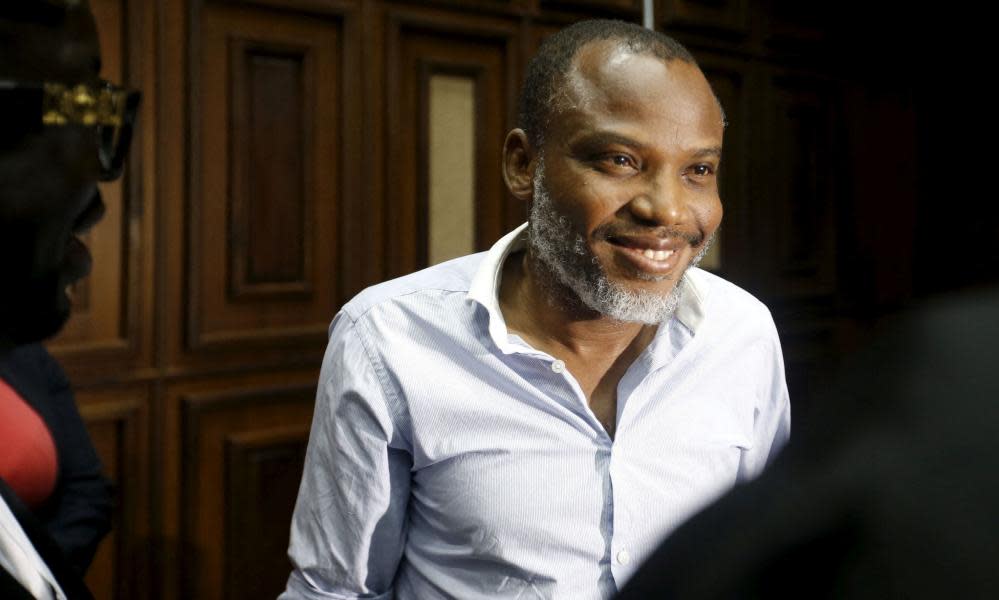Brother of Biafra separatist held in Nigeria loses court challenge against UK

The brother of a British national being held in Nigeria after falling victim to extraordinary rendition has said he is disappointed after the high court dismissed his challenge to UK ministers’ handling of the case.
Kingsley Kanu, brother of Nnamdi Kanu, leader of the Indigenous People of Biafra (Ipob), a prominent separatist movement proscribed in Nigeria, claimed that three foreign secretaries – Liz Truss, Dominic Raab and then James Cleverly – had acted unlawfully by failing to reach a view on whether he had been subjected to extraordinary rendition.
He said the UK’s refusal, despite findings by the UN and a Nigerian court, had frustrated efforts to secure the release of his brother, who has been held largely in solitary confinement, in poor conditions and without access to medical treatment for a heart condition since he was seized in Kenya and flown blindfolded to Nigeria in June 2021.
However, in a judgment handed down on Thursday, Mr Justice Swift wrote: “While the secretary of state has declined the claimant’s request to state an ‘unequivocal view’ either privately or publicly, this does no more than reflect the secretary of state’s opinion on how best to conduct his affairs with the Nigerian authorities, to secure the greatest chance of providing practical assistance to Mr Kanu.”
However, the judge suggested Cleverly’s approach would now “be informed” by the court of appeal of Nigeria’s decision in October last year, post-dating the case Swift presided over, which found that Kanu had been a victim of extraordinary rendition. That judgment was stayed pending an appeal to the Nigerian supreme court.
Kingsley Kanu said it was important that a British judge had, citing the Nigerian court, found that his brother was subject to extraordinary rendition but added: “I find it very disappointing that in spite of this, the high court has held that the British authorities are not required to reach a decisive view on his rendition and can refuse to confront the mass of evidence of what has occurred.
“Until the British authorities reach such a view, it is impossible for them to properly consider what steps should be taken to assist my brother.”
He said the UK government’s approach was “clearly not working” and he hoped for permission to appeal against a decision he said “sets a dangerous limitation on the obligations the British authorities have to any British national who has been detained by a rogue state abroad”.
His lawyer, Shirin Marker, a solicitor at Bindmans, said the judgment was “extremely difficult to reconcile with longstanding legal precedent and the principle underpinning it, which is that British citizens abused abroad are entitled to expect decisiveness and protection from the British government, rather than years of hand-wringing procrastination”.
A FCDO spokesperson said: “We continue to offer consular support to Mr Kanu and remain in regular contact with his family and legal representatives, and the Nigerian and Kenyan authorities.”
Nnamdi Kanu was charged with terrorism offences and incitement in 2015 after setting up a digital radio station, Radio Biafra, at his home in London.
He fled while on bail in 2017 after an attack on his home in Nigeria in which at least 28 members of Ipob were killed. Swift’s judgment noted that Nigerian courts have awarded Kanu “substantial damages” for the events in 2017 as well as what happened in Kenya in June 2021.
Since being taken to Nigeria in 2021, he has pleaded not guilty to 15 criminal charges relating to terrorism and treason.

 Yahoo News
Yahoo News 